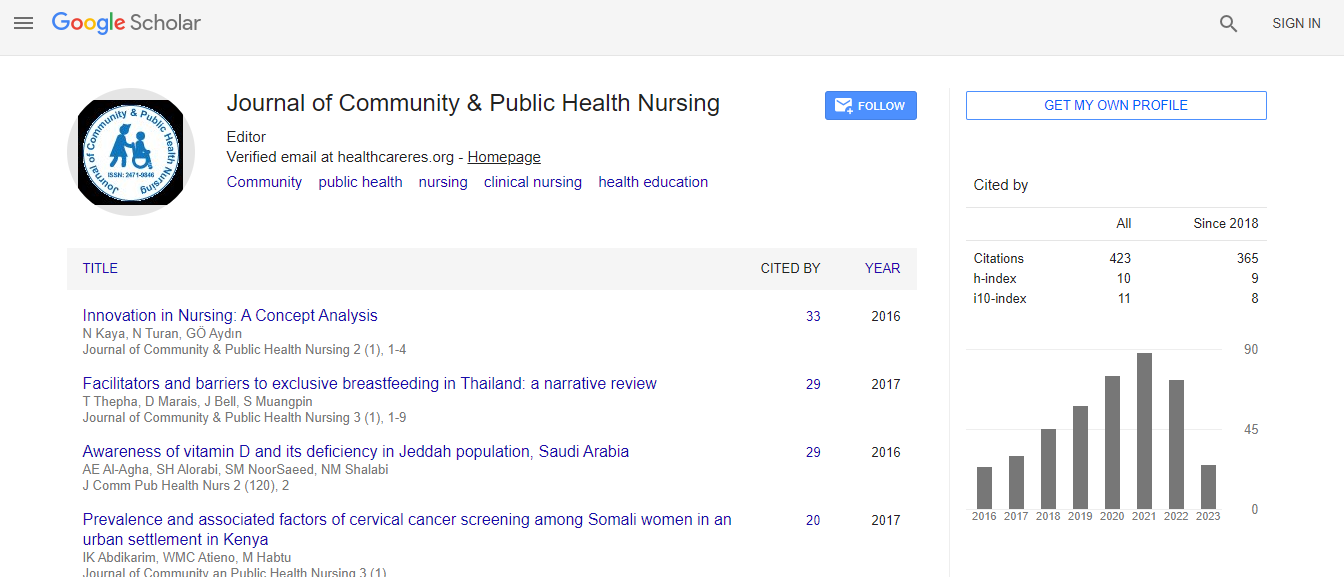Research Article
Screening for Perceived Stress and Racism in Hypertensive African American Men in a Community Health Setting
Gerald Bernard Hobbs* and Dawn M AycockByrdine F. Lewis School of Nursing and Health Professions, Georgia State University, Atlanta, Georgia, USA
- *Corresponding Author:
- Gerald Bernard Hobbs
DNP, Alumni, Byrdine F. Lewis School of Nursing and Health Professions
Georgia State University, Atlanta, Georgia, USA
Tel: 470.488.2028/404.358.3929
Fax: 770.937.4044
E-mail: ghobbs1111@msn.com
Received date: March 30, 2017; Accepted date: April 13, 2017; Published date: April 20, 2017
Citation: Hobbs GB, Aycock DM (2017) Screening for Perceived Stress and Racism in Hypertensive African American Men in a Community Health Setting. J Comm Pub Health Nursing 3:168. doi:10.4172/2471-9846.1000168
Copyright: © 2017 Hobbs GB, et al. This is an open-access article distributed under the terms of the Creative Commons Attribution License, which permits unrestricted use, distribution, and reproduction in any medium, provided the original author and source are credited.
Abstract
Objective: To explore the feasibility of screening for perceived stress, perceived racism, and provision of transcendental meditation education in hypertensive African American men receiving care at a community health clinic.
Design and sample: An exploratory-descriptive pilot project was conducted with 21 African American men. Measures: Surveys were used to measure levels of perceived stress and perceived racism. Educational materials on transcendental meditation were offered. A study evaluation survey was completed.
Results: Participants ranged in age from 37 to 58 years old. Perceived stress scores were high (M=21, ± 9.5) and perceived lifetime exposure to racism scores were low (M=20.3, ± 19.2). The majority (81%) felt that it was important to screen for stress and 57% would use evidence-based coping if education was offered.
Conclusion: Screening for perceived stress in hypertensive African American men and educating them about the relationships between perceived racism, stress and hypertension, may be a feasible option to potentially help them to manage their blood pressure. Further exploration to determine if and how transcendental meditation can be implemented through community health clinics is needed.

 Spanish
Spanish  Chinese
Chinese  Russian
Russian  German
German  French
French  Japanese
Japanese  Portuguese
Portuguese  Hindi
Hindi 
